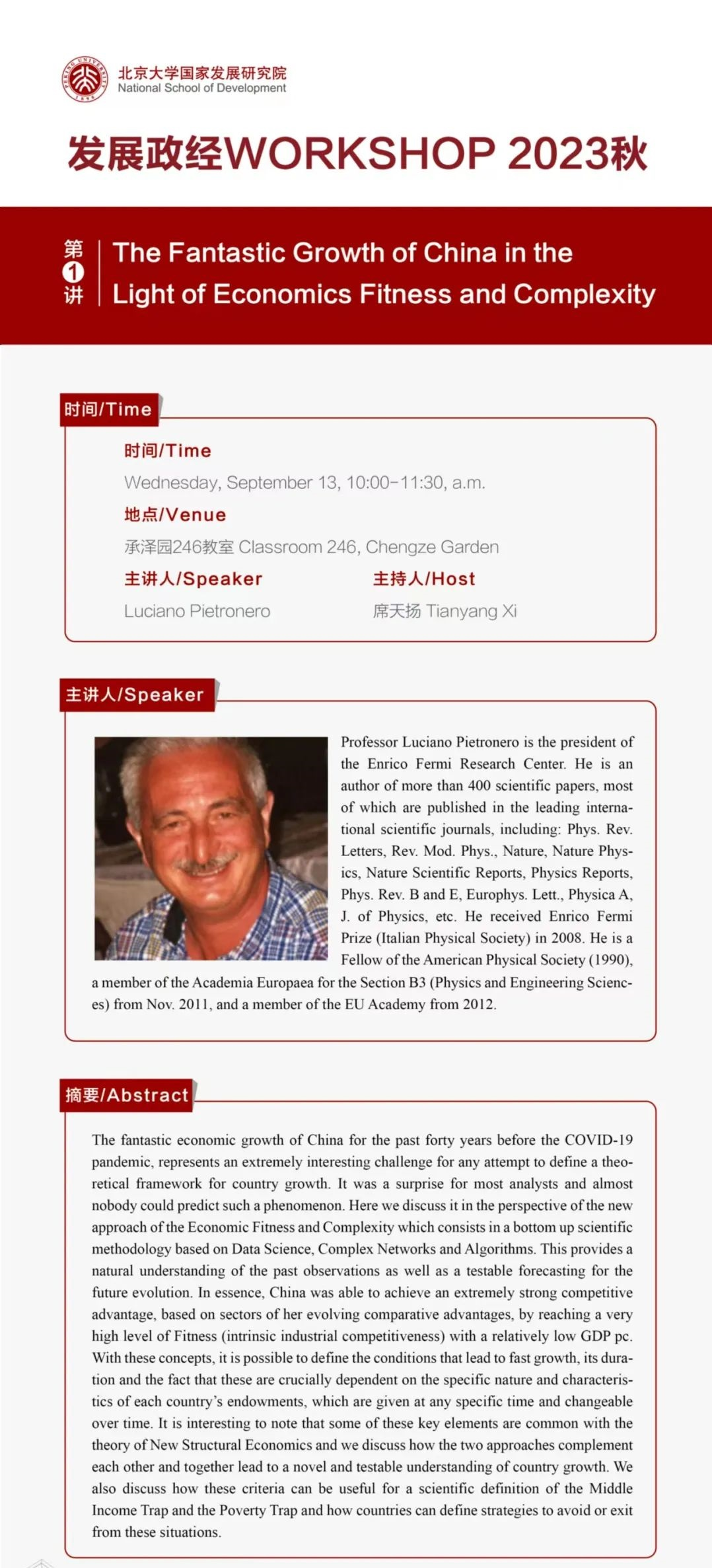Speaker: Luciano Pietronero
Host: TianyangXi
Time: 10:00-11:30 a.m., September 13, 2023, GMT+8
Venue: Classroom 246 Chengze Garden (Scan the QR code to register)
Abstract:
The fantastic economic growth of China for the past forty years before the COVID-19 pandemic, represents an extremely interesting challenge for any attempt to define a theoretical framework for country growth. It was a surprise for most analysts and almost nobody could predict such a phenomenon. Here we discuss it in the perspective of the new approach of the Economic Fitness and Complexity which consists in a bottom up scientific methodology based on Data Science, Complex Networks and Algorithms. This provides a natural understanding of the past observations as well as a testable forecasting for the future evolution. In essence, China was able to achieve an extremely strong competitive advantage, based on sectors of her evolving comparative advantages, by reaching a very high level of Fitness (intrinsic industrial competitiveness) with a relatively low GDP pc. With these concepts, it is possible to define the conditions that lead to fast growth, its duration and the fact that these are crucially dependent on the specific nature and characteristics of each country’s endowments, which are given at any specific time and changeable over time. It is interesting to note that some of these key elements are common with the theory of New Structural Economics and we discuss how the two approaches complement each other and together lead to a novel and testable understanding of country growth. We also discuss how these criteria can be useful for a scientific definition of the Middle Income Trap and the Poverty Trap and how countries can define strategies to avoid or exit from these situations.
Biography:
Professor Luciano Pietronero is the president of the Enrico Fermi Research Center. He is an author of more than 400 scientific papers, most of which are published in the leading international scientific journals, including: Phys. Rev. Letters, Rev. Mod. Phys., Nature, Nature Physics, Nature Scientific Reports, Physics Reports, Phys. Rev. B and E, Europhys. Lett., Physica A, J. of Physics, etc. He received Enrico Fermi Prize (Italian Physical Society) in 2008. He is a Fellow of the American Physical Society (1990), a member of the Academia Europaea for the Section B3 (Physics and Engineering Sciences) from Nov. 2011, and a member of the EU Academy from 2012.
Source: National School of Development

